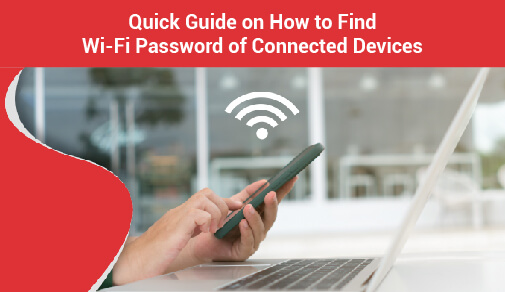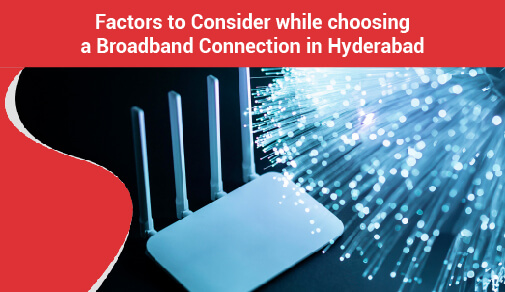Giga Internet's Impact on Streaming and Gaming in Delhi
-
0
-
-
9 minutes

Have you purchased a big 4K and HDR TV only to discover that streaming television and movies results in decreased video quality or, worse, buffering? We've all been in that situation, streaming video on your TV while lounging in your favourite pyjamas and are looking forward to seeing what happens next. Then it happens: Zee5 continues to buffer. You change the channel to Netflix. Slow. Amazon Prime, Disney+, and even YouTube TV all irritate you with distorted images and low streaming quality.
It's past time to put an end to this horror. Do you want to improve the quality of your video streaming? Let's address the concerns that keep you awake at night: why does Prime Video take so long to load? Why does Netflix continue to buffer? How are you going to put a stop to it? If your internet for streaming is slow, check to see if you're getting the speed you need from both your internet service provider and your home's WiFi configuration. However, the first step is to determine how much bandwidth you require and if switching to Giga internet speeds is the solution.
What Speed Do You Need for Streaming Apps?
Understanding bandwidth
Bandwidth is the maximum rate at which data from the internet can be downloaded to your computer. Bandwidth is measured per second in bits. Note that bits, the common measure of file size, are different from bytes. One byte equals 8 bits, so 8 megabits is equivalent to 1 megabyte (MB). A 1MB file would take eight seconds to download if you have a 1 megabit-per-second connection.
An MP3 file, which would weigh about 6MB, will take about 48 seconds to download on a 1 Mbps link. It will take about 11 hours for a 5 gigabyte, or 5,000MB, movie.
What is the minimum internet speed for streaming?
The required download speed to stream depends on the quality of the video. Streaming standard definition video requires a minimum of 3 Mbps and HD videos require at least 5 Mbps and Ultra HD videos require 25 Mbps. The rates necessary for streaming each service vary, but OTTs are an excellent yardstick to use because they are one of the most efficient when it comes to bandwidth usage. Netflix claims that a 25Mbps connection is required for 4K and HDR quality. To achieve that level, you'll need a high-speed fibre broadband connection.
25Mb - 4K and HDR
5Mb - HD
3Mb - SD
1.5Mb - Recommended minimum
0.5Mb - Required minimum
These internet speeds are indicative and you would require higher internet speeds for multiple devices.
Is 25 Mbps fast enough for Streaming?
Listed below are the internet for streaming speed recommendations for playing TV shows and movies for 1 device and 1 user.
0.5 Megabits per second - Required broadband connection speed
1.5 Megabits per second - Recommended broadband connection speed
3.0 Megabits per second - Recommended for SD quality
5.0 Megabits per second - Recommended for HD quality
25 Megabits per second - Recommended for Ultra HD quality
Manage Streaming Bandwidth Usage
Video of higher quality uses more bandwidth than video of inferior quality. You can manage bandwidth consumption by adjusting the video quality settings to low or medium to use less data if your service provider applies a bandwidth or data restriction to your Internet service.
Check Your Internet Connection Speed
Within the speed test app, many devices allow you to check your link speed. Follow the steps below to check your connection speed.
1. Start with the home screen.
2. Go and select Settings or the gear icon.
3. Click on “Check your Network.“
4. The app will check if you are able to connect to the internet and reach the servers. It will also verify your connection speed.
Why Do I Require High-speed Internet Connection for Streaming?
To begin, perform a broadband speed test to determine the speed of your current connection. Then you'll know what else you'll need to help you get up. It's that simple: if it's less than 25Mb, you'll have trouble getting high-definition video. If you don't have enough bandwidth, your streaming service will reduce the quality in order to keep the movie running.
That means you won't have to deal with a programme halt or the dreaded buffering symbol. However, it also means that you may be receiving lower-quality products without even recognising it. It's one of those instances where you could happily watch it. But then you realise what you've been losing out on when someone shows you what you might be watching in full definition.
What Can Affect Your Internet Connection?
There could be many factors impacting internet speed and we have outlined them here for you.
1. Your broadband connection:
ACT Fibernet delivers internet service to your home through fibernet. However, DSL and lower broadband services are usually wired using copper. Most high-speed broadband connections deliver internet via a hybrid fiber and copper network. ACT Fibernet provides the internet directly to your home using a 100% fiber network.
2. Home network:
Many factors inside your home can affect the rate at which you send or receive data over the internet. These include:
a. If the wiring is older, the connection tends to get weaker.
b. Distance between the router and your device. It is always advisable to place your router in a central location.
c. Duration and type of router that you have been using. It is recommended that you replace your router every few years and upgrade your router based on your internet plan.
d. Number of devices connected to the internet. The number of devices using your internet bandwidth can congest the network causing slow speeds.
e. Type of connection used
3. Connection types
You can connect your home internet through a wired ethernet cable or a wireless connection. Wired cable connections use Cat5e or Cat6 wires connected to the ethernet port on your wall or router. Wired connections give consistent performance and speed. Wireless connections provide you flexibility to move through your home, but they are not as fast as a wired connection. You get the best Wi-Fi signal closest to your router, and, with fewer devices running.
4. Type and number of devices
All devices have a maximum internet speed they can reach. However, that internet speed may not be as fast as your internet service plan. For example, if your older laptop or mobile only supports 20Mbps and you have a 1Gbps internet plan, your laptop will never be able to reach more than 20 Mbps internet speed.
5. TV and internet speed
In a lot of cases, TV and the internet connections in your home come in through the same cable. Using both services at the same time takes up more available bandwidth and can take a toll on your internet download speeds. For example, watching multiple HD shows at the same time as very high data consumption internet usage, such as downloading a complete HD movie file on your computer, may lead to lower internet speeds as compared with internet speeds when no other uses are happening on your home internet network.
Tips To Make Your Amazon Prime Streaming Experience Better:
1. Restart the streaming service if necessary. Close the software fully and log out. Restart any devices that are running it.
2. Your home network should be restarted. All that's required is a simple reset of the router to restore order.
3. Place your Wi-Fi hub and router in a convenient area that is central, open, and free of obstacles.
4. Disconnect a few devices from the network. If you have other devices or individuals using your internet, turn them off respectfully so you can devote the bandwidth to your streaming.
5. Turn off your VPN. Your connection is diverted along the way when you utilize a virtual private network, which can create delays.
6. Your DNS server should be changed. Third-party DNS servers are sometimes faster than the default.
7. Upgrade your hardware, which could include your router, Wi-Fi hub, smart TV, streaming device, or whatever other device you use to view Netflix.
8. Upgrade to a higher plan: You may have an excessive number of linked devices. Fiber optics, in general, provides the fastest speeds.
9. Upgrade your internet package if you're frequently exceeding your data limit. Buy extra bandwidth.
Why Should You Opt for a Fibernet Connection?
Fiber optic cables are the latest technology in the internet service business. These connections make use of fiber optic cables which transmit data at the speed of light. Unlike cable or DSL, the transmission happens over glass and this is immune to all interference. There are two broad types of fiber connections - direct internet access (DIA) and a fibernet broadband connection. Direct internet access is an option more commonly used by businesses as it is a dedicated internet line that provides more security and reliability of connectivity. Fibernet broadband connection is used by individuals at homes. Fibernet speeds range from 150 Mbps to 1000 Mbps
Because many providers market their 'gig-speed' plans as the end of latency and buffering, they're in hot demand and frequently come with even higher prices. Learn more about the differences between Mbps and Gbps and what's best for you before springing for the most expensive package with the fastest gigabit internet speeds.
What Am I Able To Do With Gigabit Internet?
Because they can handle an endless number of devices and users, gigabit internet speeds are frequently regarded as the gold standard for internet consumers. Internet service providers (ISPs) that offer fiber-optic and coaxial cable connections can help you find gigabit speeds. Any major provider presently offers a maximum speed of 2 Gbps (2,000 Mbps).
Benefits of Giga Speeds:
1. Supporting Video Conferencing & streaming: Video conferencing is replacing not only traditional phone conversations, but also in-person meetings. Travel is costly, but with a solid video connection, you can virtually eat at the same table. It also allows businesses to hire for a variety of roles without taking into account their location. If your videoconference with a customer or partner is disrupted by a busy internet connection, it could harm your reputation - especially for tech businesses. Investing in gigabit internet can help you seem your best online at all times.
2. Improved Productivity: The demand on your network grows as your firm invests more significantly in digital resources and cloud-based applications. If your staff are unable to access critical programmes and information, productivity may suffer. Large file sharing necessitates a lot of bandwidth, which might slow down internet connections. For many individuals, the cost of gigabit internet is easily recouped through increased productivity.
What Kind of Internet Speed Do You Require?
Do you want to know how much internet your company requires to perform smoothly? As a small-business owner, selecting the appropriate internet speed is critical for tasks such as increasing staff engagement and productivity, downloading data rapidly, and effectively interacting with consumers, to mention a few.







